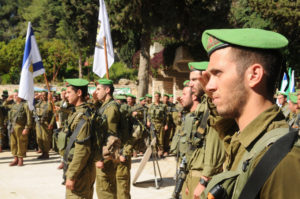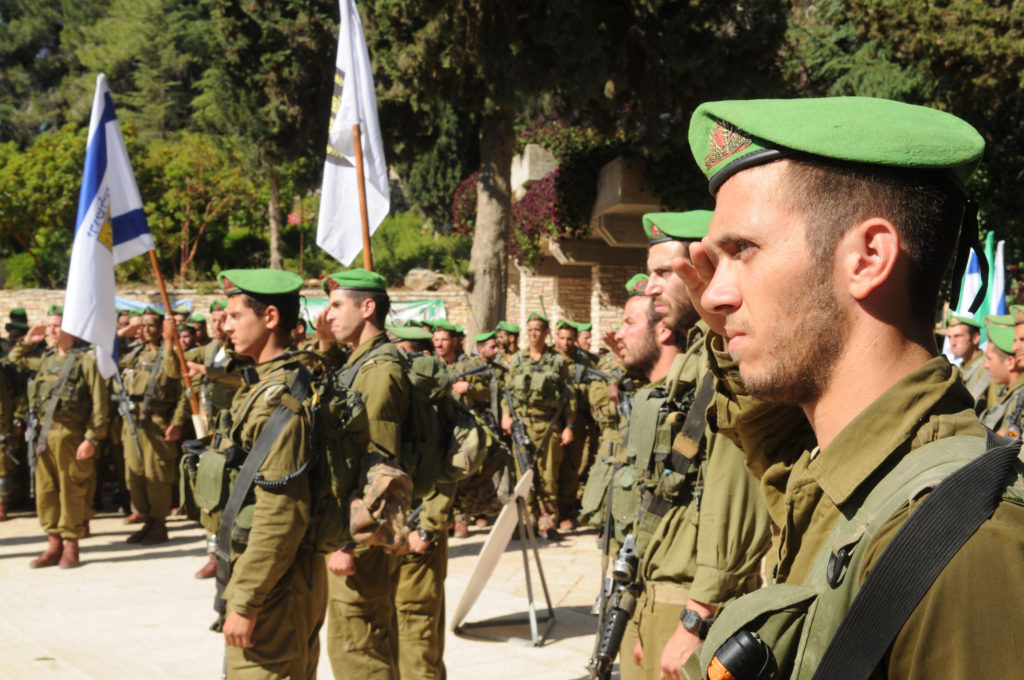
As a member of the recent Passages trip to Israel, my fellow students and I got to learn a bit about Israel’s military, the Israeli Defense Forces, and listen to a panel of active-duty officers. Their stories made a strong impression on all of us.
Since we got back six weeks ago, I’ve found myself doing some heavy thinking about the IDF and the young men and women who serve in it. Which is weird, right? I mean, why should a foreign military force halfway across the world matter so much to me? It’s not even my country.
And yet it does matter. Listening to those who have served or are serving in the IDF gave me a glimpse of a powerful perspective that, I think, few people in our comfortable world at Hillsdale get to understand. If we want to see the real consequences of the hypothetical questions we love to pose around Saga tables, we could do worse than to spend some time listening to their stories.
Most young Israelis — 75 percent of men, 58 percent of women — are drafted into the military at the age of 18. Before their 22nd birthday, many of them will enter extremely hostile environments, be forced to make difficult decisions, and sadly, see some of their friends and family perish in service of their country. Confrontation with evil and warfare at such a young age makes Israelis develop a unique perspective worth examining.
Because of persistent security threats, Israelis are forced at a young age to make serious moral decisions that have very real consequences.
“The IDF is an institution made up from mainly young and enthusiastic people who are for the most part trying to do the right thing, but in certain environments, things begin to look different,” said Mychal Zachariah, former IDF intelligence officer and graduate student at University of Chicago. “I remember talking about the right thing to do in a complex situation… You’re forced to deal with certain things that a nonmilitary environment doesn’t make you think about.”
Freshman and IDF officer Shavit Rootman talked about the pressure that this environment creates.
“I don’t think [Israelis] have the time to think or even speak as 18-year-old Americans think,” Rootman said. “There’s always this tension, always something to push you into the corner… in the IDF you learn to channel this tension positively.”
“Rejoicing in the challenge” takes on new meaning when applied to these young people. We all need to listen to the stories of those who serve in the IDF, for this simple reason: Their perspectives and stories make the abstract concepts we study very concrete. We talk a lot about freedom, personal responsibility, and honor. Talking about those ideas is one thing — living them out under violent pressure is another. Soldiers in the IDF must learn to embody these concepts in their daily lives, both at home and on the battlefield, if they are to thrive in the chaos of conflict.
That’s not to say those who serve in the IDF are necessarily ideal models of virtue, however. The IDF is a human institution, with human faults. Nevertheless, the urgency of the environment and the day-to-day tensions of the Middle East lend the complex stories of these soldiers great significance.
At Hillsdale, we are blessed to study alongside many American veterans who share the same perspective that my friends in the IDF offered me. We should seek out those who have served in both forces and talk with them. Ask them questions and listen to what they say. Become their friends, and try to understand their perspectives. Their maturity and experience will change the way you see the world, and maybe help you grasp more fully the meaning of Edgar’s beautiful line in “King Lear,” “Thy life’s a miracle. Speak yet again.”

